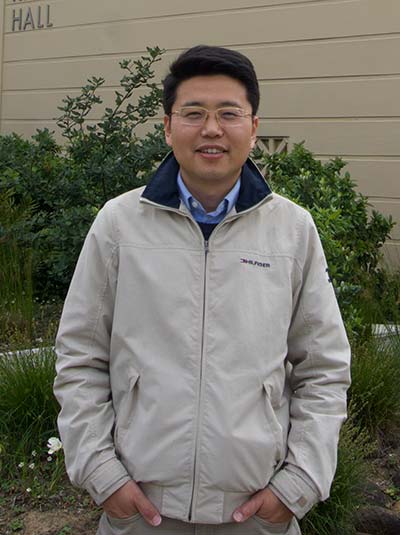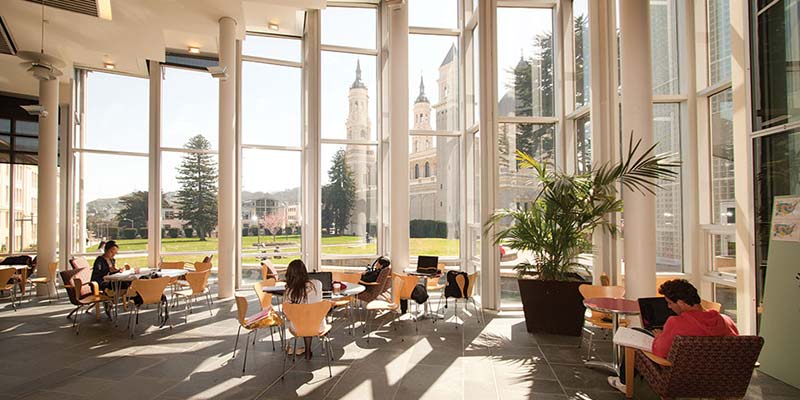
Why did you decide to study in the USA?
First, I practiced intellectual property law over 13 years in China as an IP lawyer. I wanted to learn more information about U.S. case law and to learn English and improve my professional communication.
Why did you choose the Intensive English Program (IEP) at the University of San Francisco?
I studied English on my own, but I had some difficulties in speaking and listening, so I wanted to better my skills so I could best understand my courses and succeed in my degree.
What do you like best?
For the IEP, I really enjoyed the Integrated Skills class. I gained the skills to understand academic texts and how to speak effectively about the content we learned. The teachers shared a lot of good experience with us about how to improve our English skills, not just in the classroom, but through everyday experience.
For the law program, I enjoyed the trademark and copyright law classes. My classmates were very supportive and I made friends in my cohort with both international and domestic students.
What do you miss most?
I miss my family. This was the most difficult for me as I have a wife and two children.
How has this program helped you to handle future study at a U.S. university?
I have studied here for one year. The Intensive English Program helped me to understand U.S. academic writing and reading. In my studies in the law program, we had to read a lot of texts to prepare for the classes, and in class, we gave case briefs, so my reading and speaking skills improved a lot. The presentations also gave me confidence for speaking in public.
What was your biggest surprise?
I didn’t think I would be able to do presentations in class for my professors and clients in San Francisco. I gave professional presentations on Chinese trademark law, which was a good achievement.
How have you handled:
... language differences?
There were many challenges, so I showed confidence in speaking, be it at networking sessions or in class, even if my English wasn’t that good. I also practiced reading aloud to work on my pronunciation skills. I watched a lot of movies and videos and paid attention to how native speakers pronounced their words.
... adjusting to a different educational system?
The main difference was the amount of reading preparation I had to do before class. Also, I was expected to actively participate in class, so I had to be confident and work hard.
What are your activities?
Networking with professionals in the intellectual property field. I visited attorneys in different offices in San Francisco. I went to parties and holidays with classmates and dorm mates. I also visited a district court to view the proceedings. I enjoyed running through Golden Gate Park down to the ocean.
How easy or difficult was making friends?
I had to learn about people’s culture and background and ideals. I had to respect and understand them and actively communicate with people to make friends. It wasn’t difficult for me to make friends, especially since I actively attended networking events. The only difference was my age, as I am older, but I was able to share my experience and learn new ideas from my younger colleagues.
How relevant is your U.S. education to your personal goals and to the needs of your country?
My main goal was to develop my law practice. Another goal was to improve communication and share ideas and experience in intellectual property law in the United States and in China. I was able to share my experience and advice with them and I learned a lot of useful ideas to apply in China.
What is your advice to other students who are considering a U.S. education?
They should work hard and be diligent in studying English to prepare beforehand. Focus on your subject courses and practice English, because when you get here, you will better be able to succeed. When you arrive, make friends with other international students and native speakers, so that you can practice and improve your English. Join in as many activities as you can and learn to be confident in society.

























